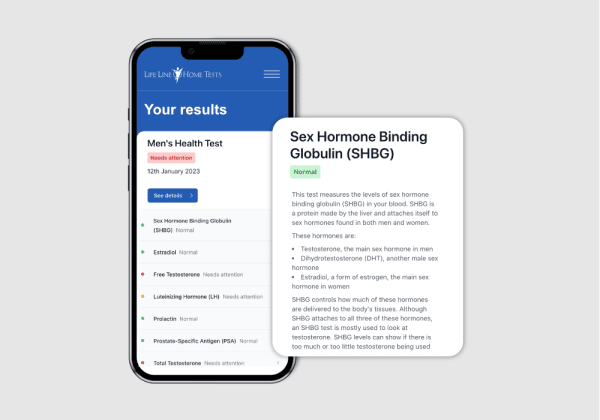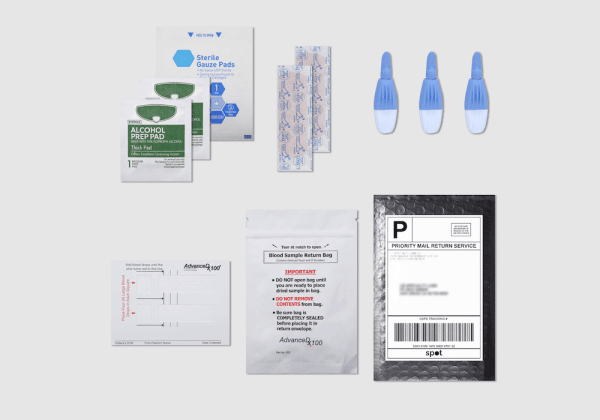Men’s Health Test
What does this test measure?
Measures 7 key biomarkers important for men’s health.
LH: Measures the level of luteinizing hormone, an important hormone for the reproductive system.
Estradiol: Measures the level of estradiol, a byproduct of the breakdown of testosterone, which for men plays a role in sexual function and your body’s overall function.
SHBG: Measures the level of Sex Hormone Binding Globulin, a protein made by the liver that regulates sex hormones in both men and women.
Prolactin: Measures the level of prolactin in the blood, which is an important hormone for reproductive health.
Total Testosterone: Measures the levels of both attached (bound) and free (unbound) testosterone. In men, testosterone regulates sex drive, bone mass, fat distribution, muscle mass and red blood cell production.
Free Testosterone: Measures the level of free testosterone in the blood, which is the small percentage of testosterone that is not bound to any protein. Free testosterone is responsible for bone and muscle mass and secondary sexual characteristics in men.
PSA: Measures the level of prostate-specific antigen, which can be an indicator for prostate cancer.
Collection method: Finger prick
1 NHS website. (n.d.). The ‘male menopause’. nhs.uk. https://www.nhs.uk/conditions/male-menopause/
2 SHBG Blood Test: MedlinePlus Medical Test. (n.d.). MedlinePlus – Health Information from the National Library of Medicine. https://medlineplus.gov/lab-tests/shbg-blood-test/
Why is this test important?
This test provides valuable information about men’s health and wellness and enables you to share your results with your physician to address any imbalances that may be impacting how you feel.
Who is this test for?
Men 18+ who want to learn about important biomarkers that provide insight to their reproductive and overall health.







